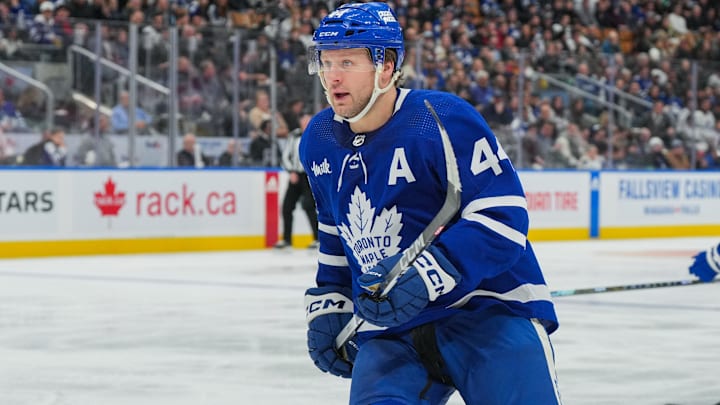Morgan Rielly
As mentioned, Morgan Rielly is having a strong year, and is obviously the Toronto Maple Leafs best defenseman. Although Rielly is “good but not great” defensively, he is the only Leaf D to consistently display offensive skill.
Rielly is currently 4th in team scoring (7G, 36A, 43P) and enables the team to break out of the defensive zone with either smart passes or strong skating and puck carrying. He leads the team in ice time and anchors the top powerplay unit.
With no offense meant to team captain John Tavares, the captain of the Toronto Maple Leafs should really be Morgan Rielly. He is a skilled veteran, the longest tenured current Leaf (in his 11th season) and is well liked and respected on and off the ice.
Rielly earned more respect from his teammates recently with his reaction to the Ottawa Senators Ridly Greig rookie mistake of taking a slapshot into an empty net. Whatever Greig’s reason for the slapper, it was a clear sign of disrespect for the opponent.
Like it or not, team culture in the NHL demands a response to disrespect. Rielly immediately went after Greig to deliver the response. I don’t believe Rielly’s crosscheck was meant to end up on Greig’s face, and for that carelessness he deserved a suspension (the length doesn’t really matter). The point is, the Leafs were rightly criticized earlier this season for not responding appropriately to provocation, and Rielly made sure it didn’t happen again.
Grade: A+
